There are many ominous signs that show you need to see a Gastroenterologist and in this post, you’ll learn what symptoms to look out for. A Gastroenterologist is a medical professional and physician that has undergone a rigorous and extensive training to learn how to manage, treat, and cure medical circumstances related to the gastrointestinal tract. These areas include the intestine, the stomach, the liver, the esophagus, and the rectum.
With such a title requiring over 5 years of training in “internal medicine” and “Gastroenterology” (upon completion of graduating medical school); GI doctors provide exceptional care and treatment and are commonly more successful than physicians when it comes to the diagnosis and treatment of gastrointestinal complications.
How Gastroenterologists accurately diagnose and Treat Warning Signs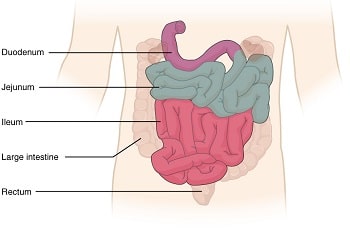
Table of Contents
- 1 How Gastroenterologists accurately diagnose and Treat Warning Signs
- 2 Have you been previously diagnosed with a condition?
- 3 Meeting with a Gastroenterologist
- 4 15 Signs that show it’s time to see a Gastroenterologist for Treatment
- 4.1 Are you experiencing Acid Reflux, Heartburn or GERD Symptoms?
- 4.2 What causes GERD and Heartburn?
- 4.3 What treatment options are available for Heartburn and GERD?
- 4.4 Do you have a lump in your throat?
- 4.5 Shorts or Pants too tight all of a sudden? It may not be from Dietary/Exercise Habits
- 4.6 Have you Encountered Sudden, Unexpected and Unexplained Weight-Loss?
- 4.7 Experiencing Abnormal Bleeding from the Rectum area?
- 4.8 Are you experiencing Symptoms of Indigestion or Dyspepsia?
- 5 What causes Indigestion and Dyspepsia?
- 6 Are you experiencing Nausea or Vomiting? This could be a Digestive Tract Infection
- 7 Warning signs of having “Lactase Deficiency” include:
- 8 Fever, Diarrhea, Vomiting and Nausea – Warning Signs of a Possibly Serious Condition
- 9 Suffering from consecutive diarrhea or rectal bleeding?
Gastroenterologists receive specialized training in “endoscopy” which is the practice of using a small and narrow, yet flexible “tube” with a built-in camera that will be used to navigate the GI tract during procedures, surgeries or diagnostic testing to see if any diseases or growths are present.
When it comes to gastrointestinal related medical problems, seeking the treatment from a Gastroenterologist will assure you receive the most effective treatment possible as you’ll receive treatment from a medical professional that has the unique and in-depth training experience that will translate to you receiving both high-quality and “comprehensive” treatment care for any GI related medical complications that you may be encountering.
It’s statistically proven thru the use of studies that Gastroenterologists perform colonoscopies and comprehensive care for gastrointestinal issues at a higher success rate compared to the treatment(s) being provided by other types of physicians. What this means for you is that you’ll receive treatment that will accurately detect the presence of cancer or polyps while resulting in a decrease in the chance of a medical complication arising from treatment (GI-treated patients can also expect to spend less time in the hospital).
In this write-up, we’ll be covering the “Top 15 Warning Signs that you need to see a Gastroenterologist” which will help you to determine if you have the symptoms of a medical complication that would require the attention and treatment from a GI doctor.
Have you been previously diagnosed with a condition?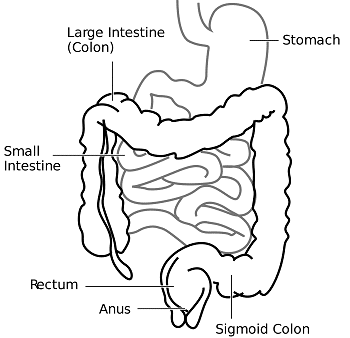
When you first start to recognize newly formed “pains” or any signs/symptoms stemming from the digestive tract region such as heartburn, abdominal pain, diarrhea or constipation you may be questioning yourself as to whether or not you should visit a regular doctor, an internist or a gastroenterologist (digestive specialist). Whom you choose to diagnose your condition(s) at the beginning of them arising may vary on a number of factors.
In some situations, making the right choice of seeing a physician or a gastroenterologist may be unclear but below we’ll help you with understanding the symptoms to look out for gastrointestinal problems that should be diagnosed and treated from a GI doctor.
If you are just now experiencing symptoms or pains in the digestive area for the very first time then the first step may be to seek counsel from your primary doctor such as your primary care physician or internist.
This will hopefully be a doctor with whom you’ve built a relationship with over time as he/she would have total-access to your medical and treatment history which can be reviewed to help determine what’s causing the symptoms you’re experiencing.
Meeting with a Gastroenterologist
Upon you meeting with your doctor and providing him/her with your symptoms a physical exam will be executed to make the determination as to what whether tests should be conducted or not. Once the doctor has completed the physical exam and has a good idea as to what’s causing you the sudden gastrointestinal pains he may determine that treatment needs to be provided by a specialist that can provide affective recovery care. In this case, the “specialist” would be the Gastroenterologist.
Dr. Tarugu, an experienced and award-winning gastroenterologist from South Florida recommends that individuals that are consistently experiencing either sporadic or recurring flare-up’s in previously diagnosed conditions (such as ulcerative colitis, Crohn’s disease or IBS) should immediately seek treatment from a gastroenterologist to avoid further growth or complication maturity.
During your treatment from the gastroenterologist, he/she will update your physician with the status of your condition(s) and the progress that’s being made. These updates will help your primary care physician to have a good understanding of your status which will help the physician to provide you with proper care down the list as post-recovery support. A couple of other gastrointestinal diseases that GI doctors treat are diseases that are located within the pancreas area or the liver.
If your primary care physician suspects that issues are arising in these areas than it’s safe to assume that you’ll be referred to a local gastroenterologist for an in-depth diagnosis and so a treatment plan can be devised.
In this guide we’re going to provide the warning signs for each of the following conditions: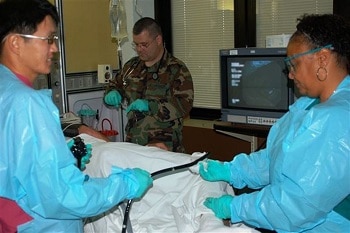
- Acid Reflux, Heartburn, GERD
- Dyspepsia/Indigestion
- Nausea and Vomiting
- Peptic Ulcer Disease
- Abdominal Pain Syndrome
- Belching, Bloating, Flatulence
- Biliary Tract/Gallbladder Disorders and Gallstone Pancreatitis
- Gallstone Pancreatitis
- Gallstones in Women
- Constipation and Defecation Problems
- Diarrhea (acute)
- Diarrhea (chronic)
- Irritable Bowel Syndrome
- Hemorrhoids and Other Anal Disorders
- Rectal Problems in Women
Each are unique signs of potentially serious conditions that should not be dismissed as “not important” as each of the above-listed symptoms could result in much worse complication-signals if not diagnosed and treated “early on”.
Below, we’ll cover what each of these symptoms could mean and why it’s important to seek the guidance and treatment of a GI doctor as quickly as possible.
15 Signs that show it’s time to see a Gastroenterologist for Treatment
Are you experiencing Acid Reflux, Heartburn or GERD Symptoms?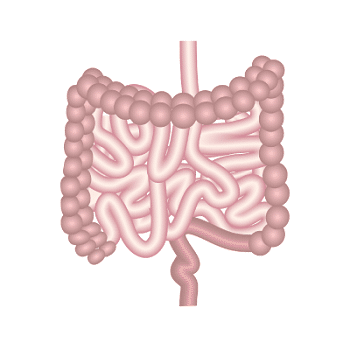
It’s estimated that a total of 60 million individuals in the US experience and suffer heartburn an average of at least once per month with an estimated 15 million people suffering from the condition “daily”. Experiencing symptoms of acid indigestion (heartburn) are most typical among pregnant women and elderly individuals.
There’s a condition called “Gastroesophageal reflux” which is a bodily condition that causes stomach acid to backwardly flow and return into the esophagus. Because of this, some individuals will, unfortunately, have the experience of symptoms stemming from this when this process takes place (which could be daily, weekly or monthly).
One of the first signs of seeing a gastroenterologist for heartburn is the experience of feeling a heated discomfort coming from the region behind the breastbone. This feeling has a tendency to transit to the throat and neck area so discomfort of any sort in this area should be a warning sign that you need to see a Gastroenterologist for diagnosis/treatment.
Another warning sign of acid-reflux is a “sour” or “bitter” taste in the back of your throat as this is the taste of the stomach acid. Since the heated pressure symptoms of heartburn can last for up to several hours (and worsen upon eating), such consistent agitation in this area should prompt you to seek immediate diagnostic testing from a GI doctor.
If you experience such symptoms 2 or more times per week, or experience weight loss, blood loss or food sticking than you may have a case of heartburn that’s very serious. If such symptoms arise you may possibly have a condition known as “Gastroesophageal reflux disease (or “GERD for shot).
What causes GERD and Heartburn?
Before you can begin to understand the exact causes of GERD or Gastroesophageal reflux disease you must first understand what the causes of heartburn are. A majority of individuals will feel the agitation of heartburn in the event that the esophagus lining comes in to contact with stomach fluids for an extended period of time.
These stomach fluids consist of a few different materials including digestive related enzymes and acid. As the stomach acid stays in contact with the lining of the esophagus an injury to the esophagus can occur which result in a discomforting, burning and painful sensation.
While a muscular valve towards the bottom of the esophagus (known as the “Lower Esophageal Sphincter” or “LES”) keeps acid in the stomach and away from the esophagus (when functioning properly), this isn’t the case if an individual has either “Gastroesophageal reflux disease” or “GERD” as the “LES” has the tendency to relax regularly which allow for the stomach acid to reflux back in to the esophagus.
Such a symptom should be treated as soon as possibly by a GI doctor to stop the development of further complications.
What treatment options are available for Heartburn and GERD?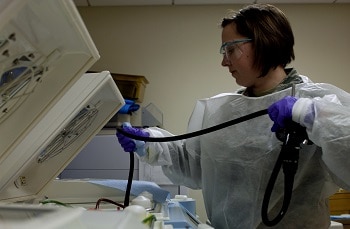
When visiting your GI doctor a treatment/recovery plan will be formulated based upon the diagnostic results.
Possible suggestions may include:
- Avoiding beverages and foods that have been proven to contribute to the occurrence of heartburn (such as greasy/spicy foods, chocolate, coffee etc.)
- A plan to end nicotine addiction as smoking will inhibit your saliva and the tobacco will cause an increase in the production of stomach acid
- A weight-loss plan if you’re deemed to be over-weight
- Avoiding the intake of food(s) before sleep
- A prescription medication to help manage stomach acid production and heartburn prevention
If you find yourself self-medicating more than twice per week for heartburn than this alone is a sign of needing to be treated by a Gastroenterologist. Conditions that go untreated by an experienced GI can potentially lead to a more serious complication.
Do you have a lump in your throat?
Are you having issues with swallowing foods? Experience difficulty when taking down liquids? Are you experiencing sporadic or consistent swelling in the throat area? If so, this could possibly be a warning sign of a minor or serious condition that should prompt you to seek a gastroenterologist for diagnosis. “Any type of pain or agitation caused from drinking water can be a warning sign of a serious gastrointestinal issue,” stated Dr. Vikram Tarugu, an experienced, board-certified and award-winning gastroenterologist.
Other warnings signs to keep note of that the gastroenterologist will need to know is whether or not your difficulty with swallowing is accompanied with hiccups, hoarseness of the throat, frequent coughing or the feel of fullness after eating a very small portion of food. If any of these potentially dangerous warning signs occur, possibly, the cause could be from esophageal cancer. As such, if you’re experiencing any of these warnings signs, do not hesitate to seek counsel from your primary physician or a gastroenterologist if you already have a relationship with one. Smell an Unusual Odor from Passing Gas? This could be a warning sign of Infectious Parasites
Surprisingly enough, on average, the typical person passes nearly 2 liters worth of gas on a daily basis unless abnormalities are taking place within the digestive tract. One warning sign to pay close attention to is if you experience pain or discomfort within the abdominal area during times of passing gas or when making a bowel movement.
Furthermore, if bowel movements and passing gas have begun to have an unusually horrid smell then this could be a sign of you having giardia which is a parasite that irritates and infects the intestines. With giardia being able to worsen if untreated, a warning sign such as this should not be overlooked.
Shorts or Pants too tight all of a sudden? It may not be from Dietary/Exercise Habits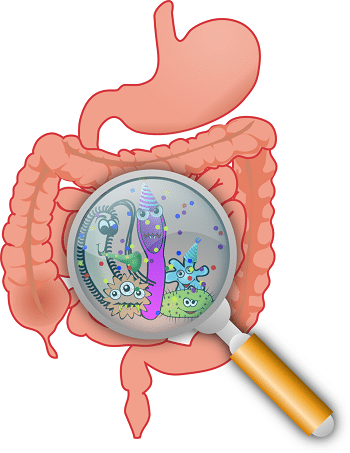
We’ve all experienced bloating at some point in our lives but if it becomes persistent then there’s a possibility of there being an underlying cause. If you’ve noticed yourself having a difficult time with getting your shorts on when just a few days ago you wore them with no problems then you “skipping out of going to the gym” may not be to blame.
Bloating simply occurs when our intake of food/air is too much and our body doesn’t properly rid itself of it. However, if bloating abruptly starts for no apparent reason (you haven’t eaten in a while) and is occurring alongside the presence of pain or blood in the stool then this could be a warning sign that it’s time to see a gastroenterologist.
Such a sign could possibly mean that the development of celiac disease, GERD (Gastroesophageal reflux disease), IBS (irritable bowel syndrome) constipation or gallstones has begun.
In any event that you recognize blood in your stool or abnormal sharp pains in the abdominal area when passing gas or making a bowel movement then you definitely need to be diagnosed and treated by a GI doctor.
Have you Encountered Sudden, Unexpected and Unexplained Weight-Loss?
One warning sign that should be diagnosed by a GI doctor is sudden, unexpected and unexplained weight loss. While sudden weight loss could be attributed various other health-related issues, typically, the best place to look for the root of the problem is the digestive system.
Dr. Tarugu, a board-certified gastroenterologist in south Florida with over 2,100 successfully completed procedures stated that “the first problems you want to isolate as the cause of sudden weight loss is cancer of the stomach, pancreas or colon”.
As such, if you experience sudden weight loss, consult a gastroenterologist so you can be sure it’s not cancerous or Chron’s/celiac disease (which would diminish your body’s capabilities of absorbing vital nutrients).
Experiencing Abnormal Bleeding from the Rectum area?
While making a bowel movement, it’d probably be a bit concerning to notice some reddish trails on the toilet paper as we all know that bleeding from such an area isn’t normal. Bleeding from the rectum area can be a sign of a potentially dangerous condition and should be diagnosed and treated “immediately”.
While it’s possible that the bleeding is being caused by hemorrhoids, if it’s not, than seeking a gastroenterologist will be absolutely necessary especially if the bleeding is reoccurring and if the individuals is over 40 years of age.
Are you experiencing Symptoms of Indigestion or Dyspepsia?
Indigestion (also medically referred to as “Dyspepsia”) is the term to describe a condition that involves multiple different symptoms that arise during eating a meal. Some of these symptoms can include the feeling of being “stuffed” once you’ve completed a meal in addition to either a “pain” or “burning sensation” in the upper abdominal area.
Indigestion is quite a common condition among middle-to-older aged adults with it occurring on a monthly, weekly or even daily basis.
What causes Indigestion and Dyspepsia?
If you experience any of the following symptoms than seeking counsel and treatment from a GI doctor is essential to complication-prevention:
- Feeling “full” during a meal – If you find yourself feeling “stuffed” and not being able to finish meals you could possibly be experiencing indigestion.
- Consistent bloating after meals – If you’ve eaten a meal and feel bloated and “overly full” for hours after the meal than this could be a sign of Dyspepsia.
- Experiencing Epigastric pain and agitation – The “epigastric” region is located towards the bottom of the chest and above the navel. If you feel pain in this area it could be a signal that you’re experiencing indigestion.
- Burning sensation in the Epigastric area – Within the same area that you may feel pain, experiencing a burning sensation in the epigastric area may be a sign of mild to severe indigestion.
What treatment options are available for Indigestion and Dyspepsia?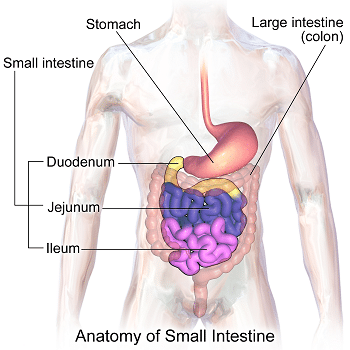
When visiting your GI doctor a treatment/recovery plan will be formulated based upon the diagnostic results.
Possible treatment suggestions may include:
- The inclusion of small meals throughout your day that are low in fat contents
- A plan on quitting smoking
- Having to stop the intake of medications that could possibly be irritating the lining of your stomach (aspirin for example)
- Stress-management techniques to help alleviate yourself of stress/anxiety
- Sleep recommendations that will help you to receive the rest you need
Keep in mind that indigestion and heartburn are two different conditions with each having their own unique symptoms.
However, if you’re experiencing the symptoms of both then it’s possible that you’re suffering from both of the two. Regardless, whether the agitation is minor or severe it’s important that you take such a warning signal seriously and seek treatment from a GI doctor that will help to diagnose and remedy the condition(s).
Are you experiencing Nausea or Vomiting? This could be a Digestive Tract Infection
Nausea is quite an unpleasant experience and can use intense feeling of dizziness, minor to severe discomfort and paint in the abdominal area. On the other hand, often times accompanies by nausea, vomiting is the occurrence of a contraction from the stomach that during times of nausea can help one feel a bit better as the content of stomach is during vomiting is the process in which it’s propelled up thru the esophagus.
Intense and consistent vomiting could possibly be a warning sign of a Gastroenteritis which can be treated by a gastroenterologist. Gastroenteritis is known to be a viral infection that causes inflammation within the digestive tract and can be treated thru the use of medication(s) which will be recommended by the gastroenterologist that you choose to visit.
Dulling pain in stomach? Vomiting? Have you lost weight? Signs to see a Gastroenterologist!
Are you experiencing a dullish pain in the stomach, weight loss, the undesired to intake food due to pain or nausea/vomiting? If so, this could be a sign of a minor yet serious matter. Such warning signs could possibly mean that you’re suffering from a Peptic Ulcer which can be diagnosed by a gastroenterologist thru the use of an upper GI series or an endoscopy.
If you’re experiencing upper abdominal pains (one of the biggest signs of a stomach ulcer) be sure that you seek the diagnosis/treatment from a GI doctor so you can have it treated while preventing the possibly of further complications arising from the condition.
Suffering from Persistent Abdominal pain? Possible signs of Abdominal Pain Syndrome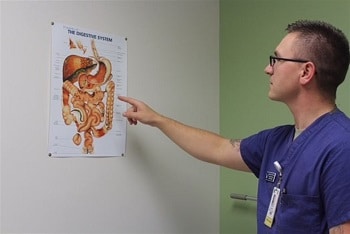
Individuals that may have GI disorders can suffer from warnings signs that are both painless and pain-induced. Such symptoms can be diarrhea/constipation (in some cases, irritable bowel syndrome). Such signs, whether they’re painful or not, could possibly be a sign of a condition other then IBS known as “centrally mediated abdominal pain syndrome” (or “CAPS” for short) which used to be medically referred to as “functional abdominal pain syndrome” (FAPS).
CAPS is a gastrointestinal disorder and is typically caused by a change in the nerve impulse sensitivity and will cause intense and frequent pain in the abdominal section which for some individuals will be quite severe.
In some cases, pain can be so intense and persistent that it’ll affect you in the similar way as the pain from a tooth ache as it can consume your focus/life since it has a tendency to “not go away” for extended periods of time. If such warning signs are present, seek counsel from a gastroenterologist where an antidepressant may be prescribed to not only reduce anxiety caused by the pain but to help alleviate the pain all together.
Having feelings of Belching, Bloating or Flatulence?
If you’re experiencing the feelings of belching, bloating or flatulence (build-up of gas in the alimentary canal), these could be warning signs that you you could possibly be suffering from a number of different conditions including allergies to certain foods, lactase deficiency, peptic ulcer disease or a H. Pylori Infection. Each of these we’ll cover below more in-depth so you can determine the possible cause(s) of your symptom(s).
Food Allergies – While not typical, the most severe allergic reaction that one can inherit from the ingestion of food is known as “anaphylaxis” which could possibly be life-threatening. Studies have shown that 90% of all allergies related to foods are caused from the ingestion of soy, wheat, shellfish, tree nuts, fish, peanuts, milk and eggs. If pain tends to arise after consuming such food items then this may be a signal that you need to seek the treatment of a gastroenterologist.
Lactase Deficiency – While lactase deficiency is pretty common with an estimated 3 million cases per year alone within the US, it’s an issue that’s brought upon individuals whose body has difficulty with digesting the sugar contents within dairy products. These issues arise in the digestive tract and can be treated by a GI doctor thru the use of recommended off-the-shelf medication(s) or by a prescribed medication (depending on the severity of your condition.
Warning signs of having “Lactase Deficiency” include:
- Unusual bloating in the abdominal area or a feeling of swelling or fullness in the abdomen region
- Intense, sharp pain in the abdominal area
- Excessive diarrhea after the consumption of food
- Gas
- Unusual nausea
Individuals suffering from “Lactase Deficiency” can expect such warning signs to arise within 30 minutes to 2 hours from the consumption of milk or other food items containing dairy.
- Pylori Infection – Individuals suffering from Helicobacter pylori (H. pylori) are experiencing a bacterial infection that infiltrate the stomach. Typically, this will occur during childhood can possibly effect adults as well. This type of infection is estimated to affect nearly half of the world population but this doesn’t mean it should be ignored.
While symptoms aren’t always noticeable there are some warning signs that if arise should prompt you to see a gastroenterologist.
Warning signs of a H. Pylori Infection include:
- An intense ache/burning sensation in the abdominal section
- Abdominal discomfort and pain even when you haven’t eaten for a while
- Nausea
- An unusual loss of appetite
- Frequent abdominal burning
- Bloating from the abdominal section
- Unexpected and unexplained weight loss
If you experience persistent and severe abdominal pain, have difficulty with swallowing or have bloody/black vomit that has the appearance of coffee grounds then seek diagnosis from a GI doctor for treatment as these are all warning signs that need attention before complications arise.
Experiencing abdominal pain after eating? Notice any yellowing of the eyes?
If you experience a yellowing of the eyes/skin then it’s very well possible that this is the warning sign that Jaundice is occurring. Jaundice is a condition in which there’s an excessive amount of bilirubin in the blood which is known, medically, as hyperbilirubinemia.
Bilirubin is a “yellow pigment” substance that affects the color pigmentation in the white of your eyes and your skin tone.
If you’re experiencing such signs of this condition schedule an appointment to see a GI doctor as quickly as possible as if not, further complications could develop which could lead to:
- Ascites – This is a build-up of fluid(s) within the abdominal area which can cause a great deal of pain
- Coagulopathy – This is the body’s tendency to be receptive to bleeding and bruising regularly
- Hepatic encephaolopathy – This is the process in which deterioration of the neuro functions diminish due to liver malfunctions, which allow results in substance build-up in the blood stream which heads to the brain (resulting in mental condition such as being “confused” or “drowsy”).
- Portal hypertension – This is a condition where there’s high blood pressure located within the veins that circulate blood to the liver which can result in complication that includes bleeding in either the stomach or esophagus
Upper Abdominal Pain Radiating to your back?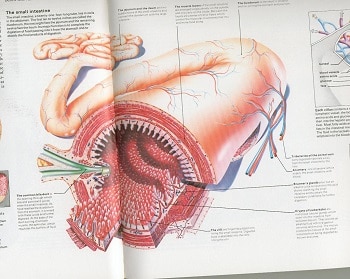
One warning signing of a possibly serious complication that should be diagnosed immediately is pain experienced in the abdominal section with the occurring pain spreading/radiating to your back. Such a feeling is a strong indicator and warning sign of “gallstone pancreatitis”.
Gallstones are a pretty common cause of pancreatitis and this is caused by gallstones that develop in the gallbladder to block the bile duct which puts a stop to the pancreatic enzymes from being able to travel to your small intestine (which forces them to return to the pancreas).
During this process, these pancreatic enzymes will agitate the pancreas cells which will cause inflammation which can cause a great deal of pain that will radiate from the abdomen to the back. In some cases, this feeling of pain will also be accompanied by a tingling, prickly sensation. If such warning signs arise, seek attention from a physician or preferably a gastroenterologist who will help to diagnose the issue so proper treatment can be prepared/prescribed.
In the event that the gastroenterologist determines that your pancreatitis us due to the gallstones then an ECRP (Endoscopic Retrograde Cholangiopancreatography) will be performed which is a procedure conducted by the GI doctor to remove the stones.
Upper Right-Hand Size Abdominal Pain – Obese/Over-weight Women
For heavier/obese women it’s important to take cautious note of any pain that stems from the upper right-hand side of the abdominal sections as such a pain could be the indicator of “gallstone pancreatitis” (a prominent condition for heavier-set women). What’s causing such pain is the process of the gallstones blocking the bile duct which causes a chain reaction as this will stop any/all pancreatic enzymes from traveling to the small intestine providing the enzymes with no choice but to return to the pancreas. If the gallstones travel from the gallbladder to the common bile duct, gallstone pancreatitis can develop which is a condition that can continue to worsen and mature in pain while also leading to further complications if not treated.
If you’re medically considered to be “obese” and have had such pain on a regular or consistent basis, consult a GI doctor as treatment in the form of medication and surgeries are available (depending on the severity of the condition). Only making 1-2 bowel movements per week? Difficulty with going? Pain during defecating?
There are a few signs to look out for and notate when looking for signs of possible gastrointestinal complications. A few of these signs include difficulties with making bowel movements, only making 1-2 bowel movements per week or if you experience pain during defecating. Constipation is considered to be present whenever an individual is making only 1-2 bowel movements per week so if this persists this alone could be a warning sign of “anal fissure”. With an estimated 200,000 cases per year within the US alone, anal fissure is a condition that refers to the tearing in the lining of the anus which can cause an immense amount of pain during all three scenarios we referred above (making bowel movements and pain during throwing-up).
Anal fissures develop throughout the specialized tissues that line both the anus and anal canal and this is called the “anoderm”. The reason this can be (and more than likely “will be”) so painful is because of the over-abundance of nerves located within the anal canal. Diagnosis and treatment from a gastroenterologist is recommended. Typically, diagnosis of this condition can be determined by the physical inspection of area with either medication or surgery being recommended to treat (depending on the severity of the anal fissure).
Fever, Diarrhea, Vomiting and Nausea – Warning Signs of a Possibly Serious Condition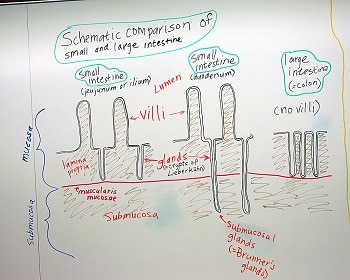
If you’re experiencing symptoms of a condition that includes intense and regular fevers, nausea/vomiting and diarrhea then notate these warning signs to show a gastroenterologist as these are signs of a possibly serious condition known as “bacterial gastroenteritis” which will need to be treated to prevent complications that could arise.
Bacterial gastroenteritis is a condition that develops and occurs whenever bacteria infiltrates your gut can and initiates an infection. If this occurs, inflammation will develop both in your stomach and intestines which will cause discomfort to say the least. Typical symptoms of “bacterial gastroenteritis” includes severe, extreme and persistent cramps in the abdominal area in addition to diarrhea/
While viruses are responsible for the majority of gastrointestinal infections bacterial infections are nearly just as common. A majority of people refer to bacteria-initiated infections as “food poisoning”.
There are a few different causes of “bacterial gastroenteritis” which can be poor hygiene habits, coming in close contact with pets or animals or from consuming foods/fluids that are contaminated with bacteria (even air-borne bacteria). If such warning signs arise, seek medical attention from a physician or preferably a gastroenterologist so the issue(s) can be properly treated to above any further development of bacterial growth.
Suffering from consecutive diarrhea or rectal bleeding?
First and foremost, any sign(s) of rectal bleeding is “not normal” and should never, in any scenario, be dismissed as a minor or non-severe matter as it’s a serious occurrence that requires the attention and treatment from a gastroenterologist.
One of the most prominent signs and symptoms of “irritable bowel syndrome” (IBS) is rectal bleeding and the presence of blood in the stool. In some circumstances, a warning sign is not making a bowel movement at all or only 1-2 times per week.
Blood expressed from the body caused IBD will appear to be “bright red” while if blood is originating from the upper area of the digestive tract the blood will be darker (dark/black stools). If such a sign has arisen be sure that you notate the darkness of the blood so you can provide this detail to a gastroenterologist who will use this information as a part of the diagnosis and treatment(s). In any case, if bleeding from the rectum is “severe” or if you’re throwing-up blood than this is a sign of a severe condition occurring which needs medical attention “immediately”.
Furthermore, such signs could also be a warning sign that you’re suffering from either “Crohn’s disease” or “ulcerative colitis” which are also conditions that you’ll want to have inspected by a GI doctor. Chron’s disease is a condition affecting 200,000 individuals per year and is a chronic, inflammatory irritable bowel disease that runs alone the digestive tract lining.
Ulcerative colitis is another chronic disease that inflames the bowel area which results in the digestive tract becoming inflamed. If any of the warning signs above are occurring, seek medical attention. You don’t want to take the chance of such conditions maturing in growth/size as not only could further complications arise but you may have to undergo additional treatments which otherwise could’ve been avoided had you have the condition(s) treated early on.
Experience vague or minor abdominal pain with a change in bowel movements last for 3+ months? Any changes in your normal bowel movement habits that are lasting for 3+ months is a sign that your body is changing, or, is changing due to an irregular occurrence/condition that should be looked at by a GI doctor; especially when you’re experiencing changes in bowel movement that are lasting for an extended period of time.
Irritable Bowel Syndrome (IBS) is a condition that can spark a significant amount of pain to its victims and will initiate a discomforting agitation feeling in the abdominal area. There are some very common symptoms of having IBS which include constipation, gas and diarrhea (in addition to a pain-induced belly). Having your IBS diagnosed for the severity will help you to have a planned pain-management regiment that will be created for you by the gastroenterologist.
When your stomach is experiencing pain it’s caused from the constipation or the diarrhea although is the painful feeling(s) diminish upon making a bowel movements then more than likely, your symptom(s) are an indicator of your pain being tied to a condition other than IBS (consult a GI doctor for diagnosis). This pain is initiated by contractions which can and will cause intolerable pain that will consume your life, make it difficult to rest and will make it difficult to focus on aspects of life (work for example).
Are you feeling pain stemming from the rectum? Notice bleeding or blood in the stool?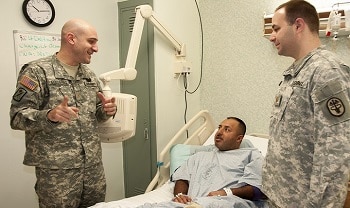
When it comes to your health it’s never a smart idea to over-look symptoms of possible health-related complications and rectal pain, bleeding from the rectum or the presence of blood in your stool are warning signs of a possibly serious complication. If you’re experiencing any of these signs, there’s a possibility that you body is suffering from one or more conditions that include it hemorrhoids, anal fissure, or anorectal cancer (although this is rare).
Hemorrhoids is a condition that should be treated by a GI doctor as Hemorrhoids is a medical condition that means the veins in the rectum and anus have become “swollen” which can cause the veins to bulge which will then result in severe agitation especially during bowel movements. Swollen hemorrhoids may be referred to by your gastroenterologist as “piles” as this is a commonly used medical term for this particular condition.
Hemorrhoids, depending on the severity of you case(if it’s determined by the GI doctor that you in-fact have it), you may undergo an operational procedure where the gastroenterologist will make use of specially designed medical equipment (not that intrusive) to “shrink” and “remove” the hemorrhoids which could actually be done on-site at the GI doctor’s office. Another treatment option is the GI doctor administering an injection in to the hemorrhoid with a specially formulated solution that will result in scarring the hemorrhoid to close it off.
Anal fissure is another condition that could be occurring if bleeding from the rectum is prevalent as this condition is the occurrence of “tearing” in the anus lining which will cause blood to originate out of the rectum which can be noticeable by looking at the stool (is blood noticeable?).
Finally, bleeding from the rectum can “possibly” be a sign of “anorectal cancer” although this is quite uncommon and not the typical cause of bleeding from the rectal region. “Anorectal cancer” is a malignant infested disease that forms within the tissues and glands of the anus. If you’re suffering with HPV (human papillomaviurs) will increase the chances of “rectum cancer development” so it’s vitally important that you seek diagnosis is warning signs such as rectal bleeding occur.
Warning sign to see a Gatroenterologist for elderly women – Bulging in Rectal area
For elderly/older women, experiencing a bulge or in the rectal area (comparable to a stomach bulge) is a serious sign of either “rectal prolapse” or “vaginal prolapse”; serious yet treatable conditions that can be cured by a gastroenterologist thru the practice of medication(s) or procedural operations.
In the United States it’s estimated that 10% of all elderly women suffer from rectal prolapse with signs ranging from rectal bleeding to the feeling of a “bulge” in the rectal region (noticeable to the touch). Rectal prolapse, specifically, is a condition in which the parts of the large intestine will protrude out of the anus and will cause quite a bit of discomfort, pain, difficulty with making a bowel movement and rectal bleeding.
If such signs occer, don’t procrasitance on receiving treatment. Consult with a GI doctors so treatment preparation(s) can be facilitated.
Vaginal prolapse is another condition that rectal bleeding can be a warning sign of. Vaginal prolapse is a serious condition where the bladder, rectum, urethra, small bowel or uterus will begin to fall out place.
Warning signs of vaginal prolapse includes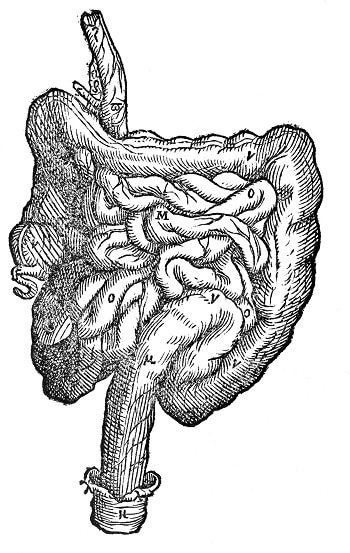
- Having the feeling of sitting on a ball
- Bleeding from the vaginal area
- Unusual increase in discharge
- Unusual issues with engaging in intercourse
- The observation of noticing the uterus (or cervix) protruding out of the vagina
- An unusual pulling/heavy feeling radiating from the pelvis
If any of these warning signs occur, it’s time to visit a gastroenterologist so you can receive an accurate diagnosis and treatment.
When it comes to your overall health, maintaining your normal body functions and avoiding complications a gastroenterologist can is a great go-to medical professional as you’ll be able to take advantage of the specialized training that the GI doctors has received so you can alleviate yourself of medical complications.
If any of this signs on this list has occurred, don’t hesitate to seek the intervention of a GI doctor. It’s paramount to ensuring the longevity of your health and will provide you with the peace-of-mind knowing that your symptoms are being affectively diagnosed and of course, treated.
We hope you found this guide helpful. Your gastrointestinal health is important to us and it’s our sincere mission to provide useful medical advice and suggestions.